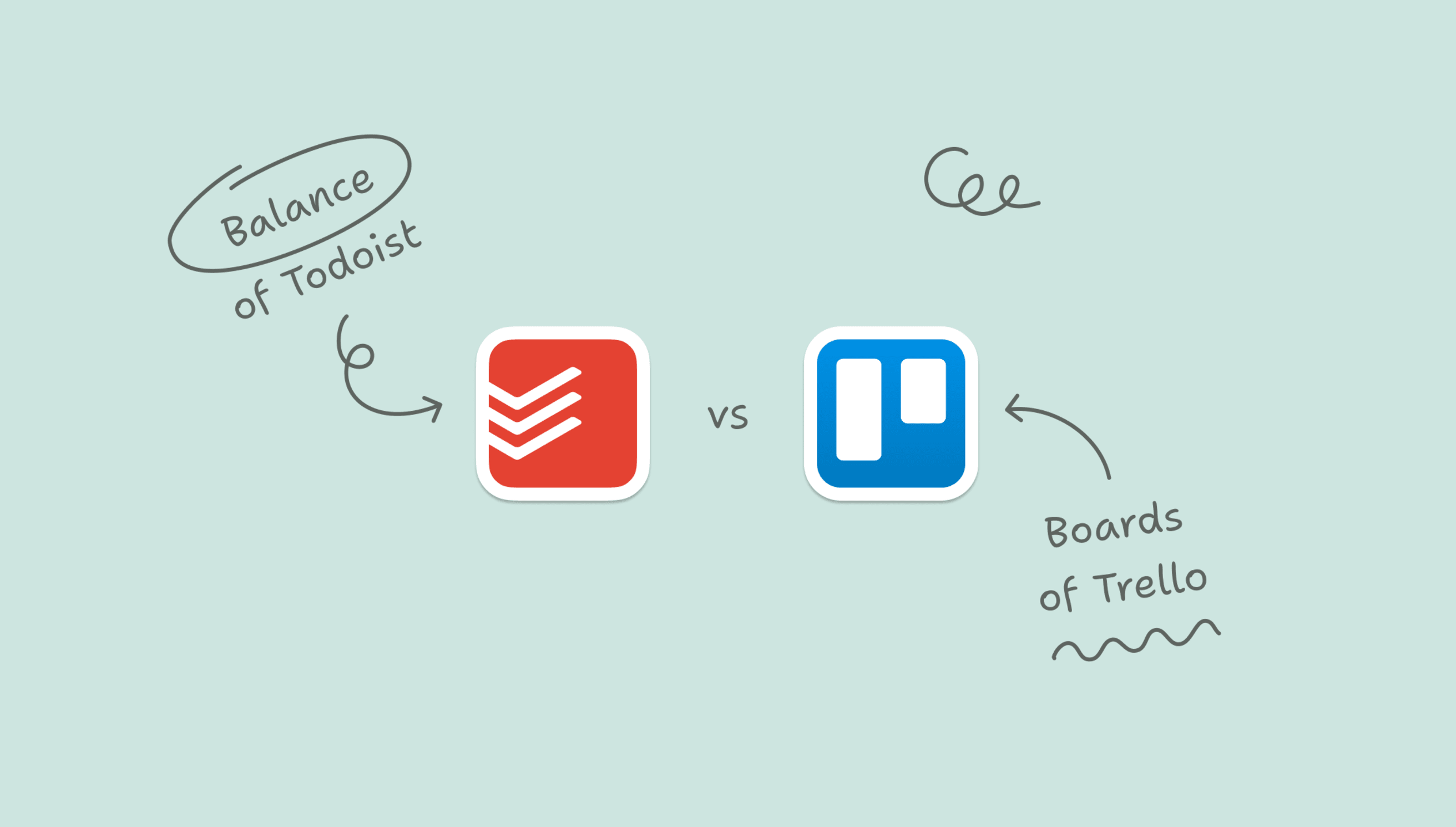Trello helped bring visual task management to the mainstream. Its board-and-card model is instantly familiar and easy to set up. For solo users or small, low-complexity teams, it often works just fine.
But for scaling teams, that simplicity can quickly turn into clutter. Endless columns. Buried checklists. Boards within boards.
Todoist offers a cleaner way forward – one built for clarity, not card chaos.
Let’s take a closer look.
| Category | Todoist | Trello |
|---|---|---|
Setup & Onboarding | Intuitive and fast – start assigning tasks immediately | Easy for individuals, but harder to structure for cross-team collaboration |
UX & Navigation | Minimalist list-based layout with advanced filtering | Card-based layout that gets crowded as complexity grows |
Collaboration | Built-in task assignment, comments, and shared projects | Board visibility can get messy across multiple teams |
Feature Philosophy | Designed for scalable productivity | Focused on visual task tracking |
Price & Value | Transparent pricing with team-focused plans | Free plan is generous, but features like views and automations are gated |
AI & Automation | Subtle AI support and natural language scheduling | Butler automations are powerful but often underused |
Brand Experience | Clean, calm, and built for momentum | Friendly and visual, but sometimes feels like a tool for personal use |
Why Teams Move from Trello to Todoist
✅ From visual boards to structured flow
Trello’s board metaphor is appealing – until you have dozens of projects running at once. Todoist provides a simple list-based structure that scales cleanly across projects, departments, and teammates.
📥 Clearer priorities
Trello lacks a true inbox or centralized view, which means tasks can easily fall through the cracks. Todoist gives everyone a single source of truth for what’s next – no need to click through boards to stay on track.
📱 Better mobile experience
Users often cite Trello’s mobile app as limited when juggling multiple boards. Todoist was built with cross-platform parity in mind – your task list works the same across all devices.
Where Trello Might Be the Right Fit
Trello might still be the better choice if your team relies heavily on visual project tracking and doesn’t need much structure. For creative teams who enjoy dragging cards across columns and designing unique board layouts, Trello offers an open, playful canvas.
It’s also useful for personal productivity, editorial calendars, or one-off projects where you want a bird’s-eye view without too many layers.
Some teams even pair the two: using Trello for content planning or brainstorming, and Todoist for execution and deadlines.
Why Growing Teams Choose Todoist
Designed for scale – Works for teams of 2 or 200, without becoming chaos.
Fast to onboard, easy to stick with – No need for process templates or training sessions.
Action-oriented – Focuses on next steps, not just task visualization.
Flexible but opinionated – Keeps teams aligned without overcomplicating things.
Frequently Asked Questions
Q: Can Todoist replace Trello for project management?
A: Yes – especially if your team is managing multiple projects and wants a centralized task list instead of jumping between boards.
Q: What does Trello offer that Todoist doesn’t?
A: Trello excels at visualizing workflow. Its card system is great for creative planning, content pipelines, and Kanban-style project tracking.
Q: Is Todoist better for teams?
A: For most scaling teams, yes. Todoist has features like shared projects, granular permissions, templates, and AI-assisted task management.
Q: Can Trello and Todoist work together?
A: They can. Some teams use Trello for brainstorming and big-picture planning, while keeping daily execution and deadlines inside Todoist.
Q: What makes Todoist more scalable?
A: Todoist’s structure supports task hierarchy, sections, filters, and shared views – making it easier to manage complex projects without the need for power-ups or integrations.

